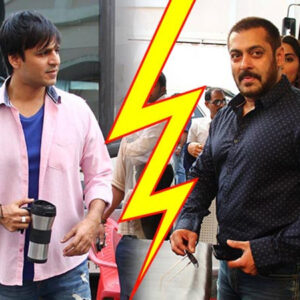Gangster has no religion. Lawrence Bishnoi vs Dawood Ibrahim RJ Raunak
In the complex and often murky world of organized crime, the notion of a “code” or a moral compass seems to fade into the background, overshadowed by the pursuit of power, money, and influence. The recent feud between two notorious figures, Lawrence Bishnoi and Dawood Ibrahim, underscores the reality that for these gangsters, religion is merely a facade—an irrelevant aspect in the grand scheme of their criminal enterprises. RJ Raunak delves into this compelling narrative, examining how these two criminals embody a lawless world where religion holds no sway.
The Players: Lawrence Bishnoi and Dawood Ibrahim
Lawrence Bishnoi, hailing from Punjab, has made headlines in recent years as a powerful and influential gangster. His rise in the criminal underworld is marked by a series of violent clashes and an extensive network of operatives across India. He is infamous for his ruthless tactics and a seemingly unquenchable thirst for vengeance against those who oppose him.
On the other hand, Dawood Ibrahim, a name synonymous with organized crime, has been on the radar of law enforcement agencies for decades. Based in Pakistan, Ibrahim is wanted for a multitude of crimes, including terrorism and extortion. His infamous underworld empire stretches beyond Indian borders, and his influence is felt in various global criminal activities.
Despite their different backgrounds and geographical bases, both Bishnoi and Ibrahim share a commonality: they operate outside the realm of societal norms and moral constraints. Their lives are dictated by a singular focus on power and wealth, leading to a ruthless competition between them.
The Gangster Code: A Misnomer
In the public eye, gangsters often adhere to a so-called “gangster code” that implies a set of unwritten rules governing their conduct. However, as RJ Raunak highlights, this code is nothing more than a myth. For Bishnoi and Ibrahim, principles such as loyalty, respect, and even religion are easily discarded when it comes to the pursuit of their objectives.
Bishnoi’s actions serve as a stark reminder that gangsters view their world through a lens of opportunism. In a recent clash, he openly challenged Ibrahim’s authority, making it clear that he seeks to carve out his empire, even if it means betraying any semblance of a code. This betrayal is not just of others, but also of the religious and cultural affiliations that many people hold dear.
Religion is often seen as a guiding light for millions, shaping their ethics and morals. Yet, in the eyes of a gangster, such notions are inconsequential. Instead, they are reduced to mere tools—sometimes employed to garner sympathy or manipulate the public, but ultimately discarded when they no longer serve a purpose.
The Clash of Titans: Rivalry Between Bishnoi and Ibrahim
The rivalry between Bishnoi and Ibrahim is emblematic of the broader struggle for dominance within the criminal underworld. As Bishnoi attempts to expand his territory and eliminate rivals, he targets Ibrahim’s network with calculated precision. This battle for supremacy is not just a power struggle; it is a manifestation of the anarchic principles that govern their lives.
In a recent interview, RJ Raunak elaborated on how the conflict highlights the absence of a moral compass in gangster life. Bishnoi’s brazen attacks and threats against Ibrahim illustrate a disturbing trend in which violence is the primary language spoken among gangsters. The chaos surrounding their feud serves as a reminder of the dangers lurking beneath the surface of society—a stark reality for those who believe that the criminal world operates by its own set of rules.
The Impact on Society
The ongoing rivalry between Bishnoi and Ibrahim has far-reaching consequences for society. The violent clashes, public threats, and law enforcement actions not only put innocent lives at risk but also instill fear within communities. The implications are profound, as the actions of these gangsters ripple through society, creating an environment of tension and uncertainty.
RJ Raunak emphasizes that the allure of gangsters often seduces the youth, who see in them a path to power and respect. This misguided admiration is dangerous; it breeds a culture that glorifies violence and criminality. The consequences of such admiration are devastating, leading to a cycle of crime and retribution that undermines societal stability.
The Illusion of Power
At the heart of the Bishnoi-Ibrahim rivalry is the illusion of power that both gangsters seek to wield. They operate under the belief that control over territory, resources, and fear translates to supremacy. However, as RJ Raunak aptly points out, their power is ephemeral. Law enforcement agencies and rival gangs continuously challenge their authority, revealing the fragility of their positions.
For those entangled in the web of organized crime, the illusion of power comes at a steep price. Lives are lost, families are torn apart, and communities are left to grapple with the fallout of their actions. This destructive cycle serves as a cautionary tale for society, reminding us of the consequences of glorifying criminality.
Conclusion: The Call for Awareness
The ongoing saga between Lawrence Bishnoi and Dawood Ibrahim offers an unsettling glimpse into the world of organized crime—one devoid of religious affiliation or moral standing. RJ Raunak’s analysis sheds light on the harsh realities faced by those ensnared in this violent realm, challenging us to reconsider our perceptions of gangsters and their impact on society.
As we navigate this complex narrative, it becomes imperative for society to recognize the dangers posed by glorifying such figures. The call to action is clear: we must engage in discussions about crime, violence, and their societal implications. Let us work towards building a community that fosters awareness and understanding, steering our youth away from the allure of a life steeped in crime.
To delve deeper into this compelling narrative and explore the intricacies of the Bishnoi-Ibrahim rivalry, be sure to watch the accompanying video. Your engagement and understanding are vital in reshaping perceptions and fostering a more informed society. Click here to watch the video now!
News
Actress Mamta Kulkarni Returns to Mumbai After 25 Years After Bombay HC Drops FIR In Drug Case
Actress Mamta Kulkarni Returns to Mumbai After 25 Years After Bombay HC Drops FIR In Drug Case In a dramatic turn of events, Mamta Kulkarni, the enigmatic Bollywood star of the 90s, has made headlines again, this time for stepping…
Rashmika Mandanna and Salman Khan Gear Up for Electrifying Dance Number in Sikandar – Behind-the-Scenes Look!”
Rashmika Mandanna and Salman Khan Gear Up for Electrifying Dance Number in Sikandar – Behind-the-Scenes Look!” Rashmika Mandanna and Salman Khan Gear Up for Electrifying Dance Number in Sikandar – Behind-the-Scenes Look!” Rashmika Mandanna and Salman Khan Rehearse for an…
Nargis Fakhri Involved in Shocking Double Murder Case: Sister Arrested! The Truth Behind the Bollywood Scandal!
Nargis Fakhri Involved in Shocking Double Murder Case: Sister Arrested! The Truth Behind the Bollywood Scandal! Nargis Fakhri Involved in Shocking Double Murder Case: Sister Arrested! The Truth Behind the Bollywood Scandal! Bollywood, with all its glitz, glamour, and fame,…
Deepika Padukone and Rashmika Mandanna’s Behavior with Media at the Airport Who Won Heart
Deepika Padukone and Rashmika Mandanna’s Behavior with Media at the Airport Who Won Heart Deepika Padukone vs. Rashmika Mandanna: Who Won the Media’s Heart at the Airport? Airports are often the stage for many stars to show their true colors,…
Revealed: Vivek Oberoi’s Deceptive Marketing Strategy Exposed by Actor-Critic!
Revealed: Vivek Oberoi’s Deceptive Marketing Strategy Exposed by Actor-Critic! Revealed: Vivek Oberoi’s Deceptive Marketing Strategy Exposed by Actor-Critic! In a world dominated by social media and influencer culture, marketing strategies can often blur the lines between truth and fiction. It’s…
Vivek Oberoi’s Bold Statement That Could Make Salman Khan Red-Faced”
Vivek Oberoi’s Bold Statement That Could Make Salman Khan Red-Faced” Vivek Oberoi’s Bold Statement That Could Make Salman Khan Red-Faced” Bollywood has always been home to colorful personalities, heated rivalries, and moments of drama. Among the most talked-about feuds in…
End of content
No more pages to load











